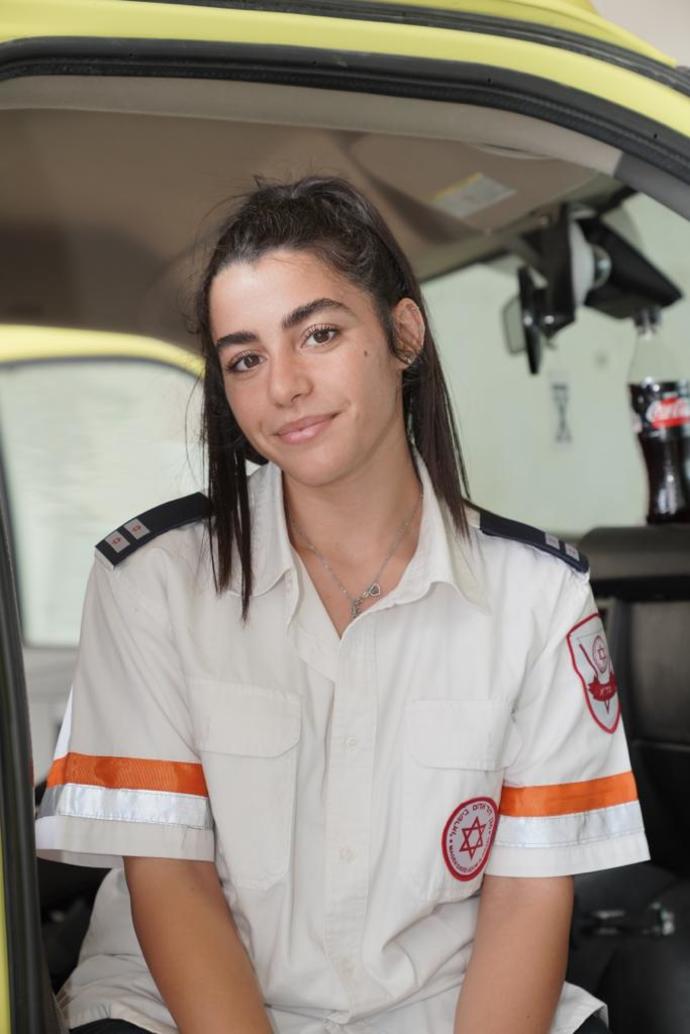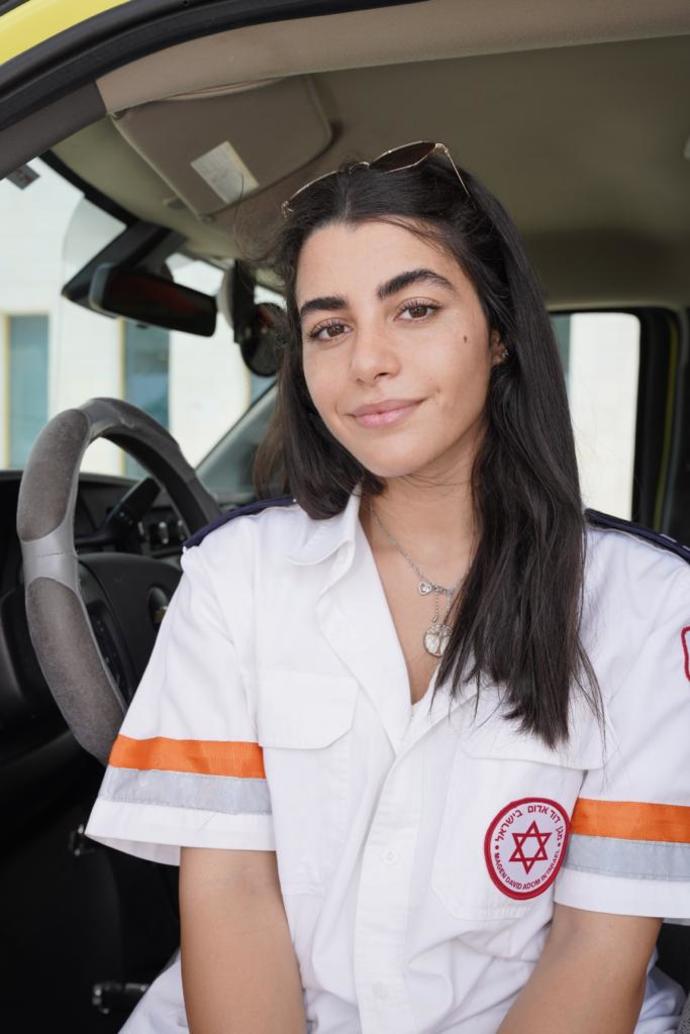'A severely wounded soldier asked me to say the Shema with him'

Oshrit Hadad, a paramedic from the Ashdod MDA station wanted to be as helpful as possible on October 7th, so she went to the Netivot MDA station to help out. This is her story.
Oshrit Hadad is a paramedic at the Ashdod MDA station and lives in Netivot. She was a close friend of Amit Mann, who was murdered while treating the wounded on Kibbutz Be’eri. Oshrit and Amit began their journey at MDA as youth volunteers in the Netivot MDA station, and over time, they both finished the highly demanding training process and became certified paramedics.
Throughout the morning of October 7th, Oshrit spoke with and messaged her friend Amit; she worried for her. “From the morning, I spoke with her throughout the day. She described what the situation was like where she was. I tried to help her as much as possible. Unfortunately, at 2 PM, she stopped responding to me. I understood that I’d lost contact with her; I hoped she was still alive.” Oshrit wanted to be as helpful as possible, so she went to the Netivot MDA station to help out. When she arrived in Netivot, she was immediately called to provide treatment as part of the Mobile Intensive Care Unit team. “We saw many bodies lying at the roadside,” she recalls. “We drove towards Be’eri, and there we treated the wounded. Afterward, in coordination with the Police and the IDF, we opened a makeshift treatment site and treated casualties from Be’eri, Sa’ad, and Re’im, all of which were under fire. We provided life-saving treatment to soldiers and civilians; we laid out stretchers side by side; next to each stretcher, we placed medical equipment: a manual resuscitator, oxygen, an advanced resuscitation kit, bandages, tourniquets, and infusion equipment. We erected floodlights on either side to light up the area and set up a table on the side with extra supplies: bandages, medicine, anesthetic drugs, respiratory equipment, and more. Several soldiers guarded the treatment site.”
"We saw many bodies lying at the roadside"
Oshrit and the team she was with treated numerous patients with the understanding that this was a race against time. “We worked quickly, stabilized the condition of the patients, and got them evacuated immediately to hospitals, primarily with helicopters, sometimes in ambulances too.” They were operating in a warzone the entire time, with explosions and gunfire close by, but they didn’t allow it to get in the way of their work. “We continued until they called us from the dispatch center, telling us to leave the area immediately, as there were terrorists on their way towards us on motorcycles. We packed everything up, loaded the wounded onto ambulances, and got out of there. Everyone felt like they needed to ‘be there,’ everyone wanted to help and treat people. We knew there were many wounded, because we had been in touch with people involved in the fighting. Everyone was focused; we knew they needed us, so we came. We worked for almost 48 hours straight. There were many people in need of treatment who needed our help.”
From Saturday morning until Sunday morning, Oshrit and her team treated the wounded at the temporary treatment site they had set up. On Sunday morning, they evacuated a patient to Soroka Hospital in Be’er Sheva for the first time. On their way back, they made a stop in Netivot, organized what they needed, and then drove straight back to the junction. Oshrit says she worked continuously treating those in need and didn’t sleep from Saturday until Tuesday evening.
All of the cases they dealt with were heartbreaking, but there were two that stand out in her memory: “A soldier from a special forces unit, who had sustained gunshot wounds throughout his hand and leg, with tourniquets, wouldn’t let us treat him. He said: ‘Just give me something for the pain, I’m going back in to fight.’ We were finally able to convince him, and he agreed to receive treatment. I also remember a soldier who was severely wounded, who asked me to say ‘Shema Yisrael’ with him and to tell his family that he loved and missed them, and that he’d done everything he could to protect them.
“It will take a long time to process it all,” she concludes. “But I want to thank everyone who was there with me. Everyone there did truly amazing work.” 
Jerusalem Post Store
`; document.getElementById("linkPremium").innerHTML = cont; var divWithLink = document.getElementById("premium-link"); if (divWithLink !== null && divWithLink !== 'undefined') { divWithLink.style.border = "solid 1px #cb0f3e"; divWithLink.style.textAlign = "center"; divWithLink.style.marginBottom = "15px"; divWithLink.style.marginTop = "15px"; divWithLink.style.width = "100%"; divWithLink.style.backgroundColor = "#122952"; divWithLink.style.color = "#ffffff"; divWithLink.style.lineHeight = "1.5"; } } (function (v, i) { });


